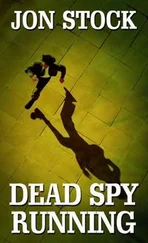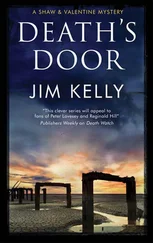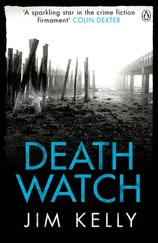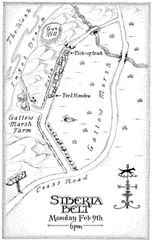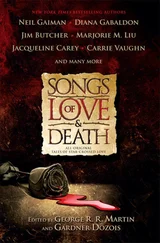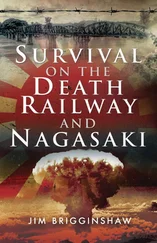Jim Kelly - Death Toll
Здесь есть возможность читать онлайн «Jim Kelly - Death Toll» весь текст электронной книги совершенно бесплатно (целиком полную версию без сокращений). В некоторых случаях можно слушать аудио, скачать через торрент в формате fb2 и присутствует краткое содержание. Жанр: Полицейский детектив, на английском языке. Описание произведения, (предисловие) а так же отзывы посетителей доступны на портале библиотеки ЛибКат.
- Название:Death Toll
- Автор:
- Жанр:
- Год:неизвестен
- ISBN:нет данных
- Рейтинг книги:5 / 5. Голосов: 1
-
Избранное:Добавить в избранное
- Отзывы:
-
Ваша оценка:
- 100
- 1
- 2
- 3
- 4
- 5
Death Toll: краткое содержание, описание и аннотация
Предлагаем к чтению аннотацию, описание, краткое содержание или предисловие (зависит от того, что написал сам автор книги «Death Toll»). Если вы не нашли необходимую информацию о книге — напишите в комментариях, мы постараемся отыскать её.
Death Toll — читать онлайн бесплатно полную книгу (весь текст) целиком
Ниже представлен текст книги, разбитый по страницам. Система сохранения места последней прочитанной страницы, позволяет с удобством читать онлайн бесплатно книгу «Death Toll», без необходимости каждый раз заново искать на чём Вы остановились. Поставьте закладку, и сможете в любой момент перейти на страницу, на которой закончили чтение.
Интервал:
Закладка:
He’d gone back to his desk in the open-plan CID room and swung open the window to smoke. Then he’d flicked through a shelf of reference books until he’d found what he was looking for … Old Lynn — A Social History.
The Flask appeared once in the index.
Of South Lynn’s whaling past, little is left except in the street names. The dockside for the whaling fleet was on Blubber Creek, now just a grassy, reedy, inlet off the Nar, opposite the end of Explorer Street. The only physical reminder of this once lucrative trade is the Flask — the pub named for one of the fleet’s most famous ships. The building is much altered but the main structure is still the timber-framed inn set up on the edge of the flensing grounds in 1776, possibly on an older site. It very soon fell into the hands of the Melville family — wealthy merchants who had moved south from Boston, Lincolnshire. Originally called the Jetty, the pub was renamed to mark the?6,000 profit made by the Flask when she returned to port at the end of the whaling season in 1848. Court records show that an action was brought against the Melville family because of the stench of blubber boiling in the vats on open ground for more than six weeks as the eleven ‘fish’ aboard were rendered. In 1885 the building was renovated after one wall collapsed in a storm. In the 1950s the pub became famous as one of the last outposts of the sea shanty. Local choirs were recorded — preserving for posterity Lynn’s unique tradition of whaling songs. Ralph Vaughan Williams came to the pub on several occasions in the summer of 1947. Several of the songs Vaughan Williams recorded in his notebook were to reappear in his later works: particularly A Sea Symphony and Norfolk Rhapsody No. 1 . In 1976 the neighbouring houses were demolished, leaving the building to stand alone with the help of steel buttresses. In the 1980s the Arts Council funded further recordings of the Whitefriars Choir. A documentary film was produced in 1993 and shown on Anglia TV — called The Song of the Sea.
Valentine had checked the date of publication: 1995.
He’d stood, stretching, wishing it was dawn. Shaw’s office was to one side, behind a glass partition. On the desk Valentine had spotted a set of forensics reports. He’d let himself in, sat in Shaw’s seat and flicked through them. There was no new relevant information from Hadden’s team — just a set of pictures of the evidence removed from the victim’s clothing, including a single shot of the pocket knife, opened out to reveal all the blades and tools. There was a handwritten note from one of Hadden’s assistants to say that the wallet was in a precarious condition and would have to be dried in a vacuum before any attempt was made to prise it open.
Valentine had seen Twine using a Swiss Army knife to cut open a package in the CID room a week earlier so he’d gone to the young DC’s desk and slipped open the top drawer. The knife, glinting, had caught the light. But it wasn’t a match to the one in the grave, although that was clearly a forerunner of the modern iconic model.
Back at his own desk he’d gone online and found the home page for Victorinox, the makers of the Swiss Army knife. He clicked the ‘History’ link. The knife was first produced for the Swiss military in the late nineteenth century after it was discovered that its men were being supplied with German-made models. In an ironic twist, by the time of the Second World War German soldiers were carrying them because they were so much better than the ones with which they were issued. American infantrymen — obsessed with collecting souvenirs on the long march from the D-Day landings to Berlin — would often pick the pockets of their dead enemies. The knives they collected were taken back to the US and fired up the market for what became known as the Swiss Army knife. There was a picture of one of the wartime knives, and it was a direct match for the one retrieved from the cemetery.
Valentine had smiled, thrown open the window and enjoyed another Silk Cut. Lynn had plenty of GI connections — there were two US air bases within twenty miles, and during the war one of Lynn’s cinemas — the Pilot — had been a popular haunt for GIs and local girls. He’d retrieved the social-history book and found a picture of the Pilot: couples in a queue along the pavement, the GIs in smart uniforms, all smoking, the girls — some of them — daringly cheek-to-cheek with black partners.
The only problem was the age of the victim: between twenty and twenty-five in 1982. But then he looked again at those couples cheek-to-cheek, and thought about the children to come.
5
Max Warren sat behind his desk, fists bunched on his blotting pad like a pound of butcher’s sausages. Shaw recalled what his father had said about Warren when the ex-Met high-flier had arrived at St James’s from London in the early 1990s: that he’d end his days in a bungalow at Cromer, chasing kids away from his garden gnomes. And it was true that the passing years had obscured the tough streetwise copper who’d been posted to north Norfolk to revitalize a sleepy seaside constabulary. He’d gone to fat, his neck slowly expanding to fill the gap between shoulder and jaw, and the once-vital sense of anger which had driven him to patrol the night streets with his men during the gang wars of the mid-1990s had turned in on itself, leaving him tetchy and impatient for the haven of retirement which was now just a few years away.
‘Right. First things first, Peter. This cemetery stiff — what’s the story and is it worth a DI’s valuable time?’ Valentine stiffened, noting that he, a lowly DS, apparently had no valuable time to waste.
Shaw touched his tanned throat where his tie should have been. ‘It’s probably a twenty-eight-year-old murder. If we get a few breaks we might get close to the killer — but that’s a long shot. There are some interesting forensics — including a wallet which Tom’s drying out so we can look inside. I’d planned to give it forty-eight hours. Then we’ll scale down if we’re nowhere.’
Valentine leant forward, relieving the stress on his back, trying not to think he wanted to cough. He couldn’t help but admire Shaw’s manipulation of his superior officer. Valentine guessed Warren was planning to give them a week — Shaw had under-cut him, which would mean Warren would back off, and they could manufacture a ‘breakthrough’ if they wanted to keep the investigation going. Not for the first time he recognized in Peter Shaw something that he lacked himself — the ability to discern the petty politics that dominated life for the top brass and to use it to his own ends.
Shaw slipped the forensic sketch he’d made on to Warren’s blotter. ‘That’s our victim.’
‘Bloody hell,’ said Warren. He looked up at the neon strip above his desk, the wooden chair creaking beneath him, and spoke to the ceiling. ‘I don’t have to tell either of you that if the words “race crime” appear in the local rag then our lives will be a continuous sodding nightmare; so can we try and avoid that?’
Shaw nodded. ‘George thinks there may be a GI link, sir. So we may have to get the military involved too. It’ll hit the press tomorrow — TV as well.’
Warren smiled, a gesture that did not signal good humour but had developed as a kind of facial grammar, indicating a change of subject.
‘Whatever,’ he said. ‘Just get it cleared up, or move on. Now. We know why we’re here — the Tessier case. Three months ago I gave you clearance to take it forward. Since then I’ve heard nothing from either of you. Now you want to see me. Why?’ He tipped forward, then looked at his watch. ‘The short version, please — I’ve got the chief constable’s finance committee at ten. I’d love to be late, but then I’d like a pension, too. So just get me up to speed.’
Читать дальшеИнтервал:
Закладка:
Похожие книги на «Death Toll»
Представляем Вашему вниманию похожие книги на «Death Toll» списком для выбора. Мы отобрали схожую по названию и смыслу литературу в надежде предоставить читателям больше вариантов отыскать новые, интересные, ещё непрочитанные произведения.
Обсуждение, отзывы о книге «Death Toll» и просто собственные мнения читателей. Оставьте ваши комментарии, напишите, что Вы думаете о произведении, его смысле или главных героях. Укажите что конкретно понравилось, а что нет, и почему Вы так считаете.



